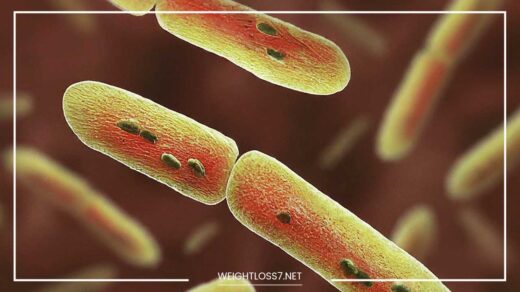Wisdom Teeth Pain: From Pain to Peace

Wisdom Teeth Pain
Wisdom Teeth Pain: A Guide to the Not-So-Wise Ordeal
Wisdom teeth. The very term conjures images of throbbing jaws, sleepless nights, and a desperate search for relief.
Eruption of these late-blooming molars is often a chaotic rite of passage for young adults, shrouded in mystery and packed with discomfort.
But fear not, fellow sufferers! This comprehensive guide will equip you with the knowledge to navigate the world of wisdom teeth, from understanding the evolutionary reasons behind the pain to conquering it with the right treatment plan.
Wisdom Teeth: A Relic of Our Ancestral Past
Our wisdom teeth, also known as third molars, are the evolutionary leftovers of a time when our jaws were larger and our diet consisted of tougher foods.
These extra molars would have been helpful for grinding and chewing coarse vegetation. However, as human diets have softened over time, our jaws have shrunk.
This mismatch in size often leads to impaction, where the wisdom tooth simply doesn’t have enough space to erupt properly. This unfortunate situation can cause a cascade of problems, including pain, infection, and damage to surrounding teeth.
The Wisdom Teeth Rollercoaster: A Symphony of Discomfort
Wisdom teeth pain can manifest in a delightful variety of ways (note the sarcasm, again). Here’s a detailed breakdown of the common symptoms you might encounter:
- Throbbing or dull ache: This is a classic sign, often felt in the jaw radiating towards the ear. The throbbing sensation can be constant or come and go in waves, making it difficult to concentrate or get a good night’s sleep.
- Swelling and redness: The gums surrounding the erupting wisdom tooth may become inflamed and puffy, making your jaw look and feel like a scene straight out of a cartoon. This inflammation can also make it difficult to open your mouth wide.
- Jaw stiffness: Chewing or even opening your mouth wide can become a chore due to tight jaw muscles. This can be particularly frustrating when you’re craving your favorite crunchy snack (but maybe hold off on those for now).
- Bad taste or bad breath: Partially erupted wisdom teeth create little pockets that can trap food particles. The decomposition of these particles by bacteria leads to unpleasant odors and a persistent bad taste in your mouth. Brushing and flossing become even more crucial during this time.
- Headaches: Thanks to the intricate network of nerves in your face, wisdom teeth pain can sometimes radiate to your head, causing headaches and making you feel like your entire head is in a vice.
Beyond the Pain: Potential Complications of Wisdom Teeth
While some discomfort during wisdom teeth eruption is normal, there are situations that require immediate attention from a dentist. Here are some red flags to watch out for:
- Fever or chills: These symptoms could indicate an infection, which needs prompt treatment with antibiotics to prevent it from spreading.
- Difficulty opening your mouth wide (trismus): This can be a sign of severe inflammation or infection that restricts jaw movement.
- Visible pus around the wisdom tooth: Pus is a telltale sign of infection and requires professional intervention.
- Numbness in the tongue or lip: This could indicate nerve damage, a serious complication that necessitates a visit to the dentist.
Seeking Solace: When to See a Dentist
Don’t become a martyr to wisdom teeth pain! Here are some clear signs that it’s time to schedule a visit with your dentist:
- Pain that interferes with your daily activities like eating, sleeping, or concentrating.
- Any of the aforementioned complications like fever, trismus, pus, or numbness.
- Persistent or worsening pain that doesn’t respond to over-the-counter pain relievers.
Treatment Options: From Temporary Relief to Permanent Solutions
There’s no magic potion for wisdom teeth pain, but your dentist has an arsenal of tools to combat the discomfort depending on the severity of your situation. Here’s a breakdown of the various treatment options:
- Pain relievers: Over-the-counter pain relievers like ibuprofen or acetaminophen can help manage discomfort. However, it’s crucial to follow the recommended dosage and not exceed it to avoid unwanted side effects.
- Antibiotics: If there’s an infection, your dentist will prescribe antibiotics to fight the bacteria and reduce inflammation.
- Oral irrigation: Using a waterpik or syringe can help dislodge food particles trapped around the wisdom tooth, reducing the risk of infection and bad breath.
- Wisdom teeth removal: In many cases, especially with impacted wisdom teeth, removal is the recommended course of action. This is often the most effective way to prevent future complications and ensure long-term oral health.
Wisdom Teeth Removal: Demystifying the Extraction Process
Wisdom teeth removal sounds daunting, but it’s a common and safe procedure performed by dentists or oral surgeons.
Here’s a step-by-step breakdown of what to expect during wisdom teeth removal:
- Consultation: You’ll have a thorough consultation with your dentist. They will discuss your symptoms, review X-rays, and determine the best course of action for your specific case. This includes deciding on the type of anesthesia (local or general) and discussing any potential risks or complications.
- Pre-operative instructions: Your dentist will provide you with specific instructions to prepare for the surgery, such as fasting beforehand and arranging for someone to drive you home after the procedure if general anesthesia is used.
- Anesthesia: Depending on the complexity of the extraction and your anxiety level, local anesthesia (numbing the area around the wisdom tooth) or general anesthesia (putting you to sleep) might be used. Local anesthesia allows you to stay awake during the procedure, while general anesthesia ensures complete relaxation and pain-free experience.
- The extraction: The dentist or oral surgeon will carefully remove the wisdom tooth. This may involve making a small incision in the gum tissue and possibly removing some bone to access the tooth root. Stitches might be placed to close the wound and promote healing.
- Recovery: Expect some swelling, discomfort, and slight bleeding for a few days after the extraction. Your dentist will provide specific post-operative instructions on pain management, eating, oral hygiene, and wound care. These instructions are crucial to a smooth recovery and minimizing the risk of complications like infection.
Beyond the Extraction: The Road to Recovery
While the wisdom teeth removal itself might be the main event, the recovery process is equally important. Here’s what you can expect in the days and weeks following the surgery:
- Pain management: Your dentist will prescribe pain medication to help manage discomfort after the surgery. It’s essential to follow their instructions carefully and not hesitate to contact them if the pain becomes severe.
- Swelling: Swelling around the extraction site is normal and usually peaks within 2-3 days after surgery. Applying a cold compress to the outside of your jaw can help reduce swelling.
- Bleeding: Minor bleeding is also expected, especially in the first few hours after surgery. Gently biting on gauze pads placed on the extraction site can help control bleeding.
- Diet: Stick to a soft-food diet for the first few days after surgery. This will minimize pressure on the extraction site and aid healing. Gradually transition to regular food as your mouth heals.
- Oral hygiene: Maintaining good oral hygiene is crucial during recovery. Gently brush your teeth and rinse with warm salt water to prevent infection. Avoid vigorous rinsing or spitting for the first few days.
- Rest and Relaxation: Your body needs time to heal, so prioritize getting enough sleep and rest to promote healing.
Taming the Wisdom Teeth Beast: Natural Pain Relief Options
While professional medical care should always be your top priority, there are some natural pain relief options that can offer temporary soothing comfort alongside your dentist’s recommendations. However, remember these are not substitutes for professional treatment:
- Cold compress: Apply a cold compress wrapped in a towel to the outside of your jaw for 15-20 minutes at a time to reduce swelling and inflammation.
- Warm salt water rinses: Mix a teaspoon of salt in a glass of warm water and gently swish for 30 seconds several times a day. This can help soothe inflamed gums and promote healing.
- Cloves: Cloves have natural numbing properties. Placing a whole clove on the affected area (not directly on the gum) for a few minutes might offer temporary pain relief. However, be cautious, as cloves can irritate the gums if used excessively.
- Chamomile tea: Chamomile tea has calming and anti-inflammatory properties. Drinking chamomile tea or using a chamomile compress on your cheek may help reduce discomfort and anxiety.
Wisdom Teeth Wisdom: Words of Advice for the Brave Souls
Here are some additional tips to navigate the wisdom teeth ordeal like a champ:
- Be proactive: Schedule a consultation with your dentist even before you experience any pain. Early detection and planning can help prevent future complications.
- Manage your anxiety: Wisdom teeth removal can be nerve-wracking, but talk to your dentist about your concerns. They can offer relaxation techniques like deep breathing exercises and discuss pre-operative medication options to help manage anxiety.
- Stock up on supplies: Before your surgery, have pain medication, soft foods, gauze pads, and a cold compress readily available for a smooth recovery.
- Listen to your body: Don’t push yourself too hard after surgery. Get plenty of rest and follow your dentist’s post-operative instructions carefully.
- Don’t be afraid to ask questions: Your dentist is there to guide you through the entire process. Don’t hesitate to ask questions about the procedure, recovery, or any concerns you might have. The more informed you are, the more comfortable you’ll feel.
- Maintain good oral hygiene: Brushing and flossing regularly before and after surgery is crucial to prevent infection. Pay special attention to the area around the extraction site, but be gentle to avoid irritating the wound.
- Be patient: Healing takes time. While you might be eager to get back to your normal routine, don’t rush the recovery process. Follow your dentist’s advice and allow your body to heal properly.
- Celebrate your victory: Wisdom teeth removal can be a significant milestone. Once you’ve recovered, take a moment to acknowledge your bravery and resilience!
Beyond the Wisdom Teeth: Long-Term Oral Health
While wisdom teeth removal might be the final chapter in this saga, good oral hygiene habits are essential for maintaining long-term oral health. Here are some key practices to follow:
- Regular dental checkups and cleanings: Schedule regular dental checkups and cleanings with your dentist, typically every six months. These appointments allow your dentist to monitor your oral health, identify any potential problems early on, and provide preventive care.
- Brushing and flossing: Brush your teeth twice a day for two minutes each time, and floss daily. Proper brushing and flossing techniques are crucial for removing plaque and bacteria that can lead to cavities and gum disease.
- Healthy diet: Maintaining a healthy diet low in sugar and acidic foods can help prevent tooth decay and gum disease.
- Consider a mouthguard: If you grind your teeth at night, talk to your dentist about wearing a mouthguard to protect your teeth from wear and tear.
The Final Bite: Wisdom Teeth Don’t Have to Be a Nightmare
Wisdom teeth pain and removal can be a daunting experience, but with knowledge and preparation, you can navigate this hurdle with confidence.
Remember, you’re not alone in this journey. Millions of people go through wisdom teeth removal every year.
By following the tips in this guide and seeking professional dental care, you can conquer wisdom teeth pain and emerge with a healthier, happier smile.
Wisdom Teeth Trivia (Just for Fun!)
- Not everyone has wisdom teeth! Some people are naturally born without them, and some wisdom teeth never erupt.
- The term “wisdom teeth” is a misnomer. These teeth don’t actually make you wiser, but the name likely arose from the belief that they emerged around the age of adulthood when people were supposedly wiser.
- The oldest known wisdom teeth were found in a fossilized jawbone dating back 1.8 million years!
So, there you have it! With a little bit of wisdom (of the dental variety), you can face your wisdom teeth with confidence and emerge victorious. Remember, a healthy smile is a happy smile!

















